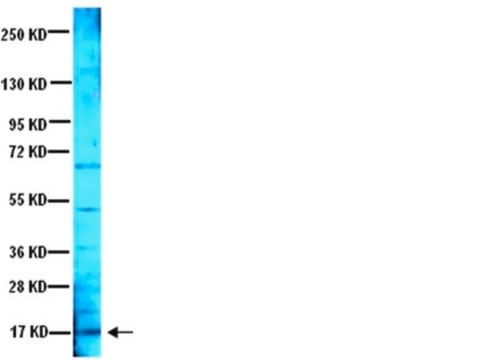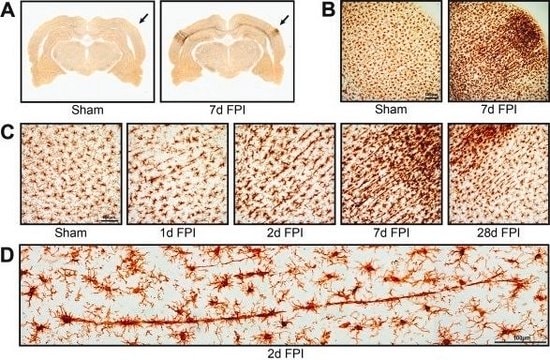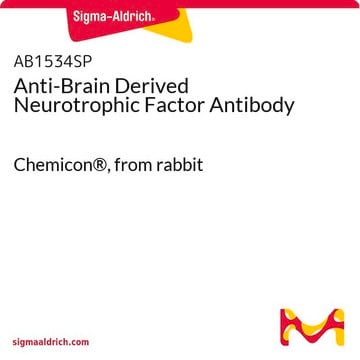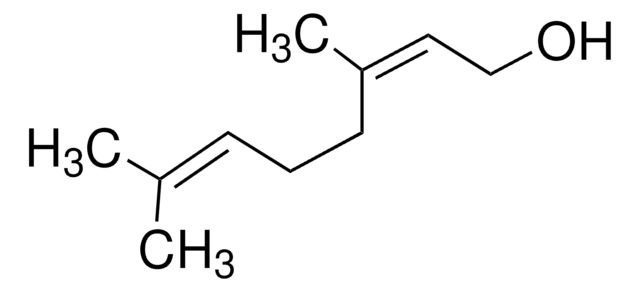MAB13426
Anti-MMP-13 Antibody, clone LIPCO IID1
clone LIPCO IID1, Chemicon®, from mouse
Synonym(s):
Collagenase-3
Sign Into View Organizational & Contract Pricing
All Photos(1)
About This Item
UNSPSC Code:
12352203
eCl@ss:
32160702
NACRES:
NA.41
clone:
LIPCO IID1, monoclonal
application:
WB
species reactivity:
mouse, rat
technique(s):
western blot: suitable
citations:
15
Recommended Products
biological source
mouse
Quality Level
antibody form
purified antibody
antibody product type
primary antibodies
clone
LIPCO IID1, monoclonal
species reactivity
mouse, rat
manufacturer/tradename
Chemicon®
technique(s)
western blot: suitable
isotype
IgG1
NCBI accession no.
UniProt accession no.
shipped in
wet ice
target post-translational modification
unmodified
Gene Information
human ... MMP13(4322)
Specificity
It recognizes proteins of ~60 kDa and ~48 kDa which are identified as pro (latent) and activate forms of matrix metalloproteinase-13 (MMP-13; also known as Collagenase-3). Antibody shows no cross-reactivity with the pro and active forms of other MMPs. Human collagenase-3 (MMP13) is a recently identified member of the matrix metalloproteinase (MMP) family that is expressed in breast carcinomas and in articular cartilage from arthritic patients. The MMP-13 gene has been isolated and characterized. This gene is composed of 10 exons and 9 introns and spans over 12.5 kb. The overall organization of the collagenase-3 gene is similar to that of other MMP genes clustered at chromosome 11q22, including fibroblast collagenase (MMP-1), matrilysin (MMP-7), and macrophage metalloelastase (MMP-12), but is more distantly related to genes coding for stromelysin-3 (MMP-11), gelatinase-A (MMP-2), and gelatinase-B (MMP-9), which map outside of this gene cluster.
Cellular Localization:
Cytoplasmic
Cellular Localization:
Cytoplasmic
Immunogen
Rat MMP-13 from BC-1 cells.
Application
Anti-MMP-13 Antibody, clone LIPCO IID1 is an antibody against MMP-13 for use in WB.
Research Category
Cell Structure
Cell Structure
Research Sub Category
MMPs & TIMPs
MMPs & TIMPs
Western Blotting (Lyons, 1991; Lyons, 1993): 1:200-1:400 at room temperature for 2 hours.
Immunofluorescence
Optimal working dilutions must be determined by end user.
Immunofluorescence
Optimal working dilutions must be determined by end user.
Physical form
Format: Purified
Storage and Stability
Maintain at 2-8°C in undiluted aliquots for up to 12 months.
Analysis Note
Control
POSITIVE CONTROL: Conditioned, serum-free medium from (PMA-treated) rat fibrosarcoma cells or rat keratinocyte CCL-4.
POSITIVE CONTROL: Conditioned, serum-free medium from (PMA-treated) rat fibrosarcoma cells or rat keratinocyte CCL-4.
Other Notes
Concentration: Please refer to the Certificate of Analysis for the lot-specific concentration.
Legal Information
CHEMICON is a registered trademark of Merck KGaA, Darmstadt, Germany
Disclaimer
Unless otherwise stated in our catalog or other company documentation accompanying the product(s), our products are intended for research use only and are not to be used for any other purpose, which includes but is not limited to, unauthorized commercial uses, in vitro diagnostic uses, ex vivo or in vivo therapeutic uses or any type of consumption or application to humans or animals.
Not finding the right product?
Try our Product Selector Tool.
Storage Class Code
12 - Non Combustible Liquids
WGK
WGK 2
Flash Point(F)
Not applicable
Flash Point(C)
Not applicable
Certificates of Analysis (COA)
Search for Certificates of Analysis (COA) by entering the products Lot/Batch Number. Lot and Batch Numbers can be found on a product’s label following the words ‘Lot’ or ‘Batch’.
Already Own This Product?
Find documentation for the products that you have recently purchased in the Document Library.
Song Ho Chang et al.
Nature communications, 10(1), 1442-1442 (2019-03-31)
Exposure of articular cartilage to excessive mechanical loading is deeply involved in the pathogenesis of osteoarthritis. Here, we identify gremlin-1 as a mechanical loading-inducible factor in chondrocytes, detected at high levels in middle and deep layers of cartilage after cyclic
Kristina Koop et al.
Frontiers in immunology, 14, 1163198-1163198 (2023-05-19)
Fibrostenotic disease is a common complication in Crohn's disease (CD) patients hallmarked by transmural extracellular matrix (ECM) accumulation in the intestinal wall. The prevention and medical therapy of fibrostenotic CD is an unmet high clinical need. Although targeting IL36R signaling
Essential role of matrix metalloproteinases in interleukin-1-induced myofibroblastic activation of hepatic stellate cell in collagen.
Han, YP; Zhou, L; Wang, J; Xiong, S; Garner, WL; French, SW; Tsukamoto, H
The Journal of Biological Chemistry null
Erika Ramos-Tovar et al.
Hepatology research : the official journal of the Japan Society of Hepatology, 49(2), 212-223 (2018-10-20)
The aims of the present study were to investigate the capacity of stevia leaves to prevent experimental cirrhosis induced by chronic administration of carbon tetrachloride (CCl4 ) in rats and to explore the action mechanism involved. Liver cirrhosis was established
Aya Miyauchi et al.
Scientific reports, 9(1), 15770-15770 (2019-11-02)
Excessive mechanical stress is a major cause of knee osteoarthritis. However, the mechanism by which the mechanical stress begets osteoarthritis development remains elusive. Hydrogen peroxide-inducible clone-5 (Hic-5; TGFβ1i1), a TGF-β inducible focal adhesion adaptor, has previously been reported as a
Our team of scientists has experience in all areas of research including Life Science, Material Science, Chemical Synthesis, Chromatography, Analytical and many others.
Contact Technical Service








